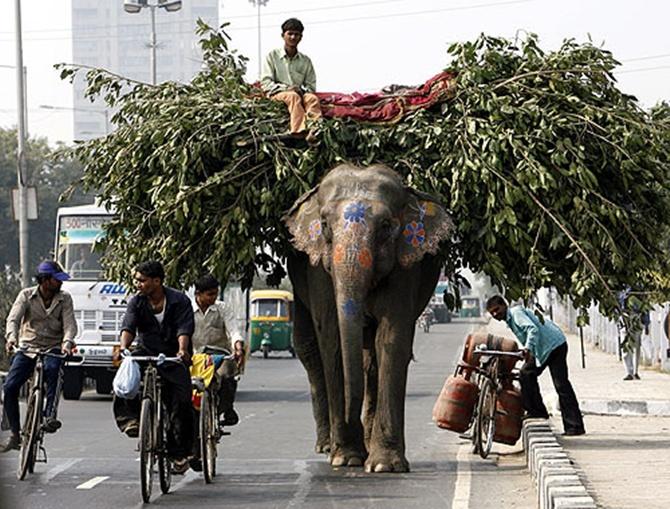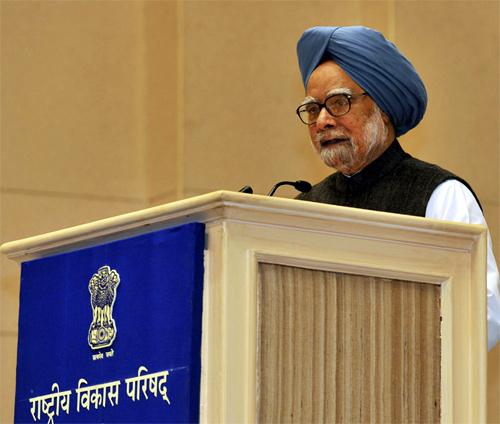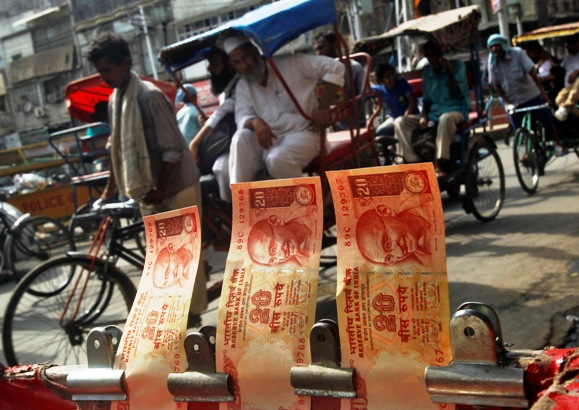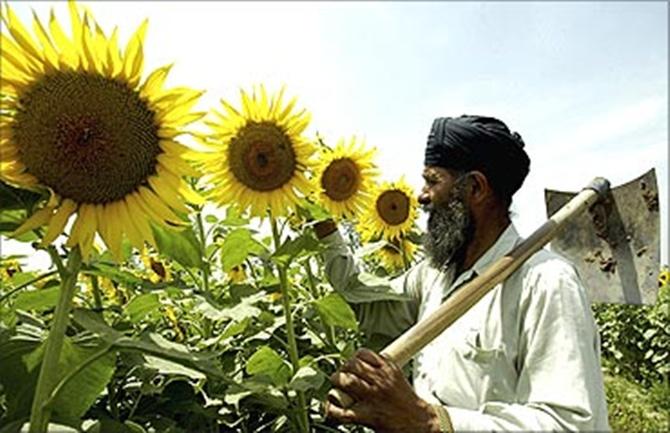
Flagging "anxieties" of business leaders on issues like red tape, tax laws, regulation and procedures, Prime Minister Manmohan Singh on Friday said he often found it tough to deal with these challenges due to "lack of political consensus on reforms".
"In the past few months, Indian business leaders have been worried. I understand their anxieties about red tape, our tax laws and administration, our regulations and procedures," he said addressing the 11th Hindustan Times Leadership Summit in New Delhi.
"I often found it tough to deal with these challenges because of a lack of political consensus on the reforms, we need to bring in," he said and lauded the business community for coping up with the competition despite the odds.
Seeking to dispel apprehensions of the economy going downhill, the Prime Minister said, "Through all the ups and down in the face of global challenges and despite the burden of past policy mistakes, our economy is on a rising growth trajectory".
Singh noted that the rate of growth has more that doubled to an annual average of over 7 per cent in the last two decades and the Indian economy got on to an upward trajectory.
"Naturally there will be periods of ups and downs. The economic cycle presents us years of high performance and years of modest performance. But the highs are getting higher and so are the lows.
...

"Today, many feel dissatisfied with the annual rate of five per cent, while for more than two decades, five per cent was the target rate of growth of our five year plans," the Prime Minister said.
He said the government's biggest challenge in trying to sustain this process of inclusive growth has been to bring rates of inflation down and keep the fiscal deficit under control.
"These remain a challenge and are being seriously addressed," Singh said.
Striking a word of caution against "any sudden acceleration of growth", the Prime Minister said that this, as was seen in the period 2004-2008, creates "imbalances that can contribute to inflation".
"Such growth can also create opportunities for personal enrichment that distorts governance and creates social resentment. Rising economic growth has helped to liberate millions of Indians from chronic poverty, reducing the incidence of poverty, but it has also widened social and economic inequalities.
"Our strategy of inclusive growth has sought to blunt the edge of such disparities," the Prime Minister said.
...

Singh recalled that when he had entered politics in the midst of a crisis in 1991, he had to worry not only about reducing the fiscal deficit and reviving economic growth, but also about stabilising the rupee and ensuring access to adequate foreign exchange as a result of the breakdown of the bio-polar world.
"Under the leadership of Prime Minister Narasimha Rao, we took momentous decisions both with respect to our economic policies and with respect to our foreign policy. Prime
Minister Rao launched what has come to be known as India's Look East Policy, linking India to the new growth engines of Asia.
"We liberalised our trade and investment rules to help us re-integrate with the global economy. In doing this, we were inspired by the experience of many East and South-East Asian countries," he said.
...

The Prime Minister said that since then the country has faced multiple challenges on the external front but it managed to protect its core economic and foreign policy interests.
"Whether it is dealing with sharp escalations in food and energy prices, or the Asian financial crisis in 1997-98 and the Trans-Atlantic financial crisis in 2008-09, or the rise of China as a global mega-trader and changing power balances in the global and regional trading regimes, we have managed to protect India's core economic and foreign policy interests," Singh said.
He said after half-a-century of zero growth between 1900 and 1950, India saw annual growth rate rise to 3.5 per cent.
"When we realised that other developing countries were overtaking us and had found new routes to development, we too changed our course in the early nineties. In the past two
decades, the rate of growth more than doubled to an average rate of over 7.0 per cent per annum and the Indian economy was put on an upward growth trajectory," Singh said.